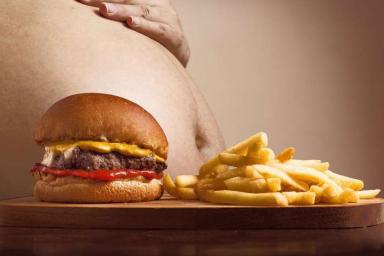Psychology
Chronic Stress: What is it
Chronic stress is the occurrence of a negative reaction of the body in response to prolonged exposure to unfavorable conditions. Prolonged stress can be recognized by both physical and psychological symptoms.
Diana Dashkevich stress anxiety mental health health facts 24 January 2024A new discovery: Screen time matters – limit your kids' online presence
Everyone knows that kids shouldn't spend too much time using their devices, but not everyone understands how they actually affect children. A review of 23 years of neuroimaging research, analyzing 33 studies with over 30,000 participants under the age of 12, has found that time spent on screen-based media has measurable and long-term effects on children's brain function.
Kate Yakimchuk research child development screen time education brain cognition 24 January 2024A new discovery: Phonemes instead of graphemes – teach kids to read faster
Research reveals that additional practice in blending printed letter sounds significantly aids struggling beginner readers in reception classes. While it might sound strange, it can actually be beneficial for lots of kids.
Kate Yakimchuk research reading child development cognitive skills education 24 January 2024A new discovery: Staying focused – how to focus on tasks better
Our ability to focus on tasks is influenced by things like motivation and alertness. It can be hard to stay focused, especially when a task is boring or repetitive.
Kate Yakimchuk research focusing concentration brain activity remote work 24 January 2024A new discovery: Misinformation – how to stop it from spreading
Countering misinformation involves various strategies, and a recent report sheds light on effective approaches. The report emphasizes the importance of techniques like debunking, prebunking, nudging, and digital literacy education.
Kate Yakimchuk research misinformation fake news spreading cognitive skills 24 January 2024Emotional Freedom Technique: What is it
It is an alternative medicine and pseudoscience technique based on the principles of traditional Eastern medicine (acupressure) and Western psychology.
Diana Dashkevich emotions relax mental health health facts 23 January 2024Interesting Facts: How Emotions Affect the Body
Emotions regulate not only the state of the body, but also the behavior of a person as a whole. They are important for optimizing all types of body activity.
Diana Dashkevich emotions health health facts mental health 23 January 2024A new study: Plants are important – teach your kids about them
To effectively educate children about climate change and sustainability, experts emphasize the need for a greater focus on the importance of plants in school curriculums. The study suggests that botany should play a more prominent role in educational policies to address the insufficient representation of plant significance and threats in science education.
Kate Yakimchuk research ecology child development education child behavior 23 January 2024A new discovery: Children are the future – how good growing conditions affect them
Providing good education and social services to young children can help communities thrive. Research professors at Virginia Tech shared insights from their decades-long study on early childhood education and development.
Kate Yakimchuk research child development cognitive skills learning intelligence 23 January 2024A new study: Bad neighborhood – how the place affects your health
A group of researchers focused on health equity has used a lot of data to test an idea: that structural racism is connected to neighborhood resources and structures that are linked to poor health. The study explored how racism is related to chronic kidney disease, diabetes, and hypertension at the neighborhood level in Durham County.
Kate Yakimchuk research neighbors mental health social skills education 23 January 2024A new experiment: Finding the truth – how checking online affects misinformation
Conventional wisdom claims that checking online for the truth about misinformation would make people believe it less. However, a new experiment shows the opposite: searching to verify false news articles actually increases the chance of believing in various lies.
Kate Yakimchuk research misinformation fake news social media intelligence 23 January 2024Important to Know: How Gut Health and Mental Well-Being are Connected
The gut and brain are closely interconnected and influence each other.
Diana Dashkevich mental health health health facts facts 22 January 2024Important to Know: Why Sleeping in Lights is Harmful
An hour and a half before bedtime, it is advisable not only to put gadgets out of sight, but also to dim the lights in the room.
Diana Dashkevich sleep sleep routine lightning sleep patterns mental health 22 January 2024A new discovery: Autistic kids – how do they develop social attention?
As kids grow, they usually pay more attention to social things like faces or interactions. However, kids with autism often find non-social things more interesting, like textures or shapes.
Kate Yakimchuk research autism attention child development cognitive skills 22 January 2024A new discovery: Snail protein – brain injury healing can be easier
Scientists discovered more about how the human brain responds to injuries. They found a vital protein called Snail that helps coordinate the response of brain cells after an injury to the central nervous system.
Kate Yakimchuk research brain damage protein health facts science 22 January 2024A new discovery: Studying Alzheimer's – a new promising data
In 2016, MIT conducted a study on Alzheimer's and found that flickering light at a certain brain rhythm might help. Now, a new review by MIT in the Journal of Internal Medicine looks at what scientists worldwide have learned since then in many studies.
Kate Yakimchuk research brain activity alzheimer's disease dementia treatment 22 January 2024Advice from a Psychologist: How to Overcome Sweet Addiction
Under the influence of sugar, like some drugs, the brain produces dopamine and opioids. Sugar stimulates the brain to produce opioids and dopamine, which increase addiction.
Diana Dashkevich sweets addiction bad habits psychologist tips 22 January 2024Important to Know: How Loneliness Affects the Psyche
Loneliness is the feeling that there is no one to talk to or spend time with.
Diana Dashkevich mental health communication loneliness psychologist tips brain 21 January 2024A new discovery: Childhood abuse – it affects people more than you might think
A recent study suggests that people who have experienced abuse may face more physical and mental health challenges than previously believed. Researchers conducted a global review and meta-analysis, examining evidence related to intimate partner violence and even childhood sexual abuse.
Kate Yakimchuk research child abuse children safety stress anxiety trauma 21 January 2024A new study: Memory transfers are real!
They discovered that the brain's memory areas actually store information like a photographic negative, which is the opposite of what we see. This means that when we look at something, the parts of our brain that process what we see become active, while the memory areas become less active.
Kate Yakimchuk research memory forming brain activity science neurons 21 January 2024


















